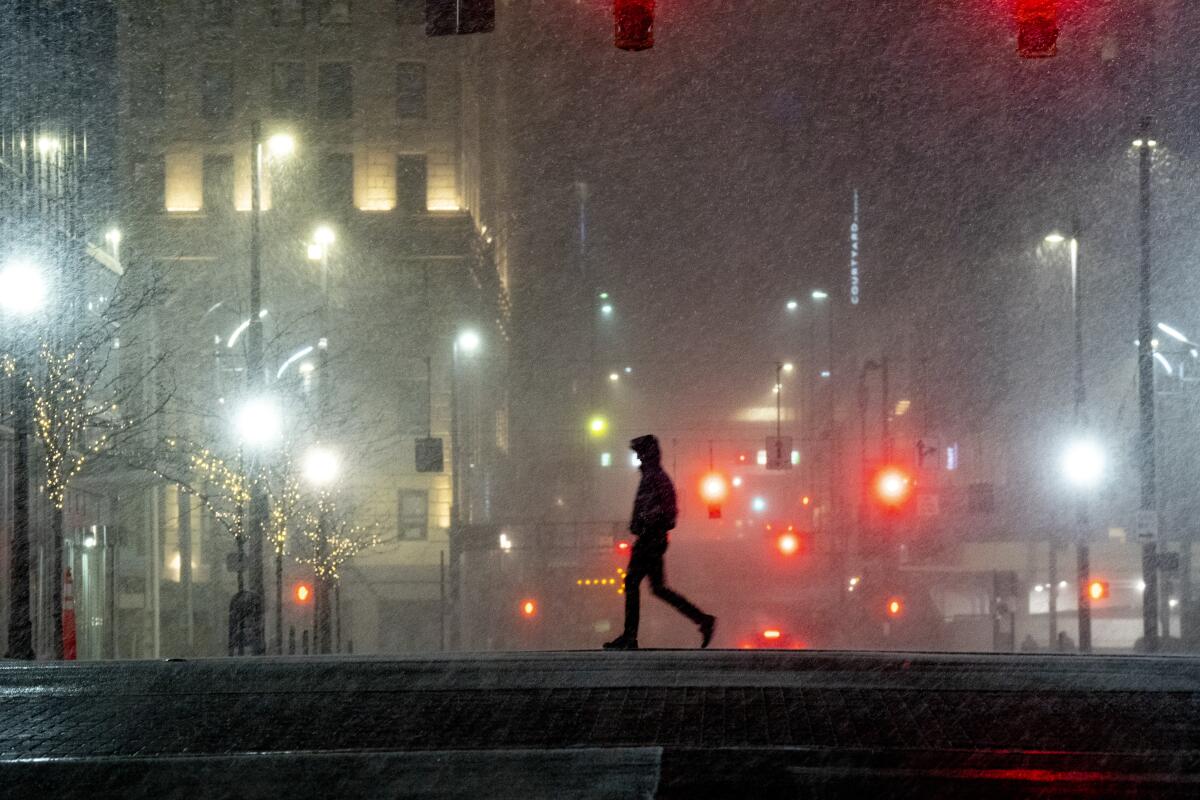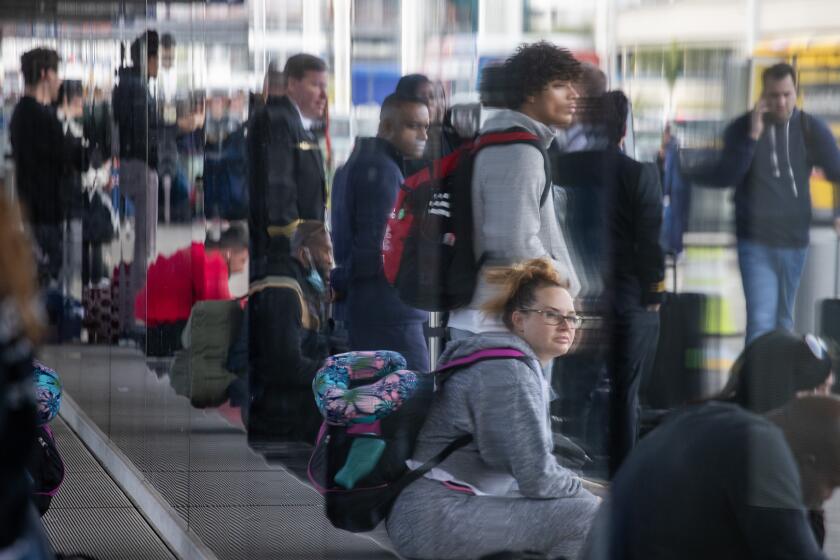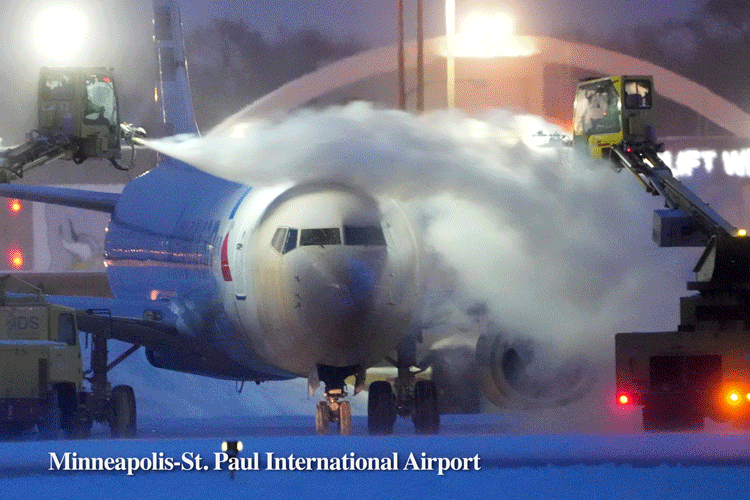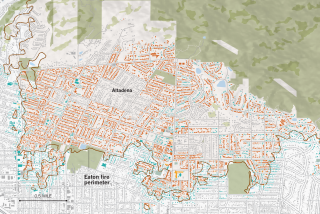Most of the U.S. is facing a ‘bomb cyclone.’ Here’s why California will be spared

- Share via
The National Weather Service has called it a “once in a generation type event” — a massive “bomb cyclone” barreling across the United States, snarling traffic, grounding airplanes and delivering some of the coldest temperatures ever recorded.
But while the dangerous Arctic blast will touch more than 100 million people in nearly every state, Californians will largely be spared. (In Los Angeles, shorts may even be in order for the holiday weekend.)
That’s largely for two reasons, according to the weather service. First, the series of mountains known as the Continental Divide is blocking much of the cold air from reaching California. Second, a high-pressure ridge developing in the Pacific will warm the West Coast in the coming days.
Photos capture scenes at Los Angeles International Airport as weather-related flight delays and cancellations make holiday travel difficult.
“We are expecting a very warm weekend with above normal temperatures,” said Joe Sirard, a meteorologist with the weather service in Oxnard. “The coast and valleys of Southern California is more than likely going to be the warmest place across the nation this weekend.”
On Sunday, Christmas Day, temperatures in the Los Angeles area will range from the lower 70s at the beaches to nearly 80 degrees inland, he said. That’s a far cry from conditions to the east, where a rapidly deepening low-pressure system known as a “bomb cyclone” is bringing snow squalls, flash freezes and potentially deadly cold.
Officials in Boulder, Colo., reported a 37-degree temperature drop over the course of an hour on Wednesday, while Cheyenne, Wyo., saw wind chills as low as minus 40 degrees. Even Southern states won’t be spared, with cities such as Birmingham, Ala., bracing for wind chills of minus 10 degrees or less.
“This is really a very serious weather alert here, and it goes from Oklahoma all the way to Wyoming, and Wyoming to Maine, and it’s of real consequence,” President Biden said in an address Thursday morning. “I encourage everyone, everyone please heed the local warnings... This is serious stuff.”
Yet most of California will hardly even feel a chill. Sirard said the Continental Divide, which separates the west from the east along the spine of the Rocky Mountains, will act as a buffer for the state, protecting it from the deep freeze by ushering the Arctic air mass to the east.
“The Arctic air is very cold and dense, so the Rocky Mountains block that cold air from coming to our area,” he said. “With all the mountains around, with the right airflow aloft, it’ll block all that cold air.”
It’s a tale of sorts — a contrast of extremes.
What’s more, the developing high-pressure ridge over California will continue to build over the weekend, delivering balmy temperatures and even some potential Santa Ana winds around the Ventura-Los Angeles county line. The warm, easterly winds typically sweep in from the deserts, pass over the mountain slopes and head toward the coast.
“So the cold air is blocked, and things are going to warm up and be mild over the deserts,” Sirard said. “And as the air comes over the mountains and compresses as it heats — it’s called compressional heating — it’ll warm up nicely.”
Not all of the western U.S. will be quite so warm, however, with some parts of the Pacific Northwest slated to see chilly temperatures, including 25 degrees in Seattle on Thursday. And while California is lucky this time around, it isn’t always immune to bomb cyclones — a similar event pummeled portions of the state with heavy rain and high winds in October 2021.
But for this weekend, at least, residents who enjoy warm weather will have something to celebrate.
“We’re very fortunate,” Sirard said. “This is the kind of weather this weekend that makes us thankful we don’t live east of the Rockies. I’m very happy to be where it’s warm.”
More to Read
Sign up for Essential California
The most important California stories and recommendations in your inbox every morning.
You may occasionally receive promotional content from the Los Angeles Times.













